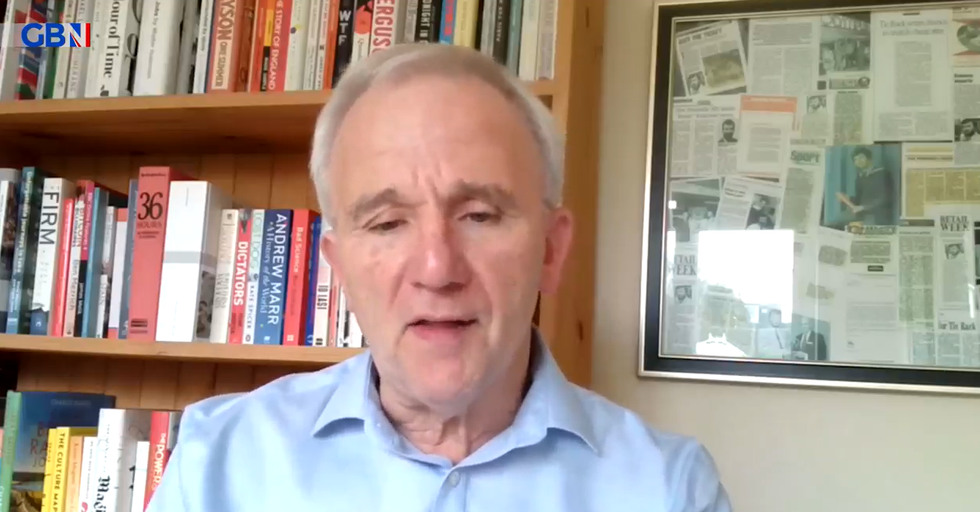Bank branch closures ‘are ruining the country and threatening communities!’
As more and more bank branches close down, access to cash is getting harder and harder
Don't Miss
Most Read
Trending on GB News
Widespread bank branch closures are “threatening communities” and “ripping the heart” out of town centres, a payment choice campaigner has warned.
Thousands of bank branches have shut down in the past decade, and while providers point towards more people using online and mobile banking, a campaign group has argued the analysis is “skewed”.
Ron Delnevo, chair of the Payment Choice Alliance told GB News: “What the banks have done is they produced a statistical analysis to show how few people use branches, but actually that analysis is skewed.
“They might tell us they're closing a branch because only 20 people use that branch. But actually, what they're really saying is those 20 people have only used that branch service in the last few months.”
The chair said he fears that as more people move to online banking, access to cash will diminish as banks will also remove their ATMS.
He said: “When we use cards or digital, the banks make lots of money. That's what suits them. But to achieve that objective, they're ruining the country.
Have you got a money story you'd like to share? Get in touch by emailing money@gbnews.uk.

Ron Delnevo has argued that there needs to be more cash withdrawal facilities
GB NEWS
“They're threatening communities. The town of Leatherhead now has five vacant premises that used to be bank branches.
“So that's kind of ripped the heart out of Leatherhead town centre.”
With fewer bank branches available, and subsequently fewer ATMs, there’s concern that if the remaining cash machines malfunction, there will be no cash available in the community.
Delnevo continued: “That's clearly not acceptable. And that's led some businesses to turn around and say, well, we're not going to accept cash any longer because there's nowhere for us to take the cash.”
Which? analysis has found that 5,987 banks and building societies have closed branches since January 2015, at a rate of around 54 each month.
Many Britons are now having to consider alternative options for banking as their nearest branch is now miles away.
Britons can use one of Post Office’s 11,500 branches or Banking Hubs - of which there are now 50 in the UK - to withdraw cash, deposit cheques and carry out other banking activities.
Delnevo explained a practical step to ensure there is cash available in communities is to ensure that Post Office branches have automated deposit facilities.
He said: “The government can help make sure that happens by properly funding or making sure at least that the Post Office is properly funded.
“Let's stop the banks procrastinating. Let's get those bank hubs open and let's see them fully equipped to deal with the needs of both the public and businesses.
“So they need to have ATMs, both for cash withdrawals and deposits, and they need to have all the facilities that the public used to get from bank branches.
“And we need those quickly. We're told by the company setting up these Banking Hubs that we'll have 200 by the end of 2025.”
The campaigner called for a UK Payment Choice Act to ensure people are allowed to use their cash when and where they choose.
He also said there needs to be more cash withdrawal facilities.
LATEST DEVELOPMENTS:
Delnevo concluded: “The idea that we can afford to lose any more ATMs is quite ludicrous.
“We've already lost 25 per cent (17,000) of our ATMs. We really need to see the terms we've got maintained and possibly increased even to meet the demands for cash.
“Around 90 per cent of people in this country still occasionally use cash. Nearly 50 per cent use cash frequently. Why should those people be refused their ability to use their cash, or to get cash in the first place?”
By the end of 2023, there were five per cent less cash machines than at the end of 2022 (51,253 vs 48,401). LINK expects this number to continue to decrease.
There are currently 38,480 free-to-use machines down from 40,869 at the end of 2022. There are also 9,921 charging ATMs, down from 10,384 in the previous year.








